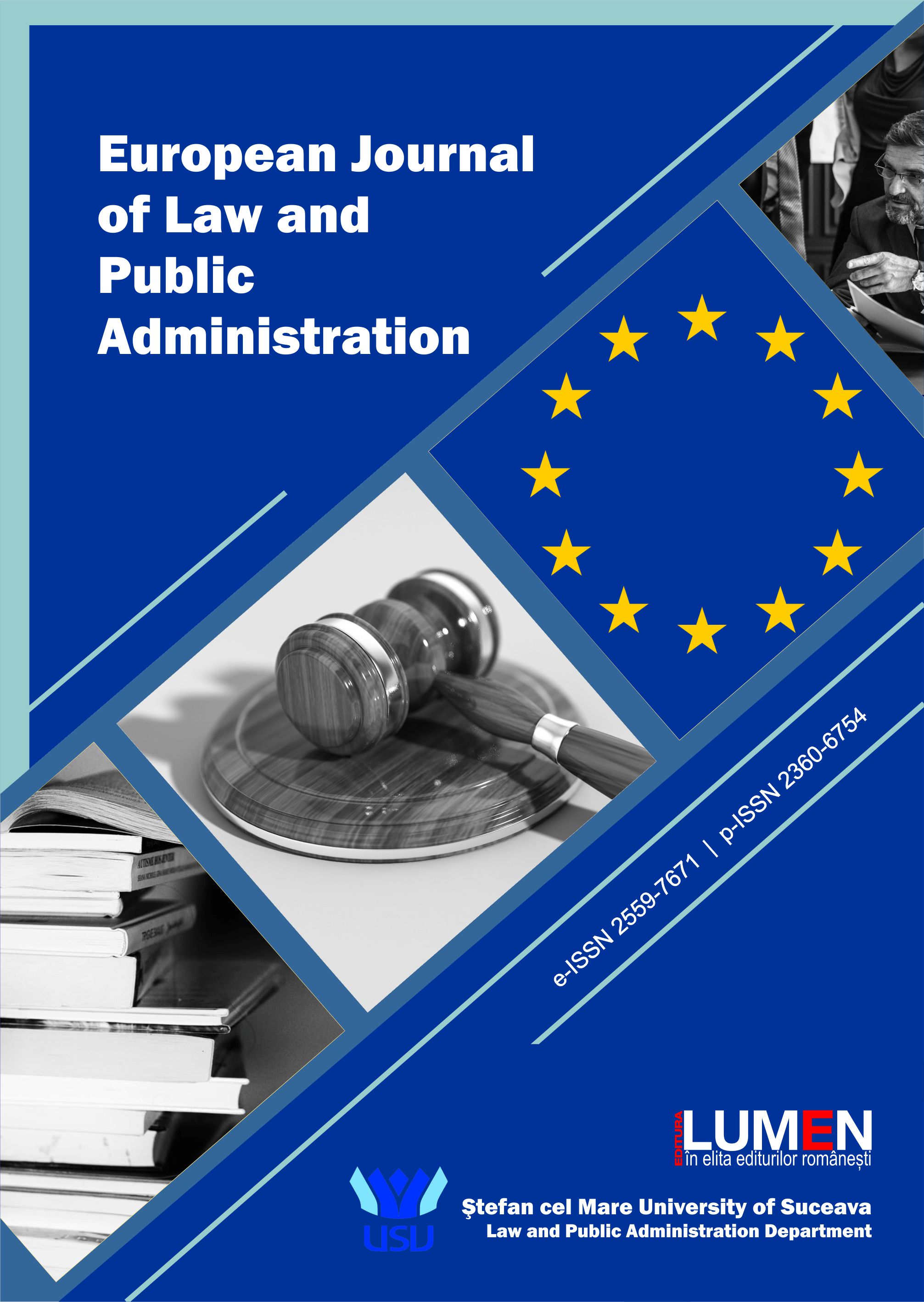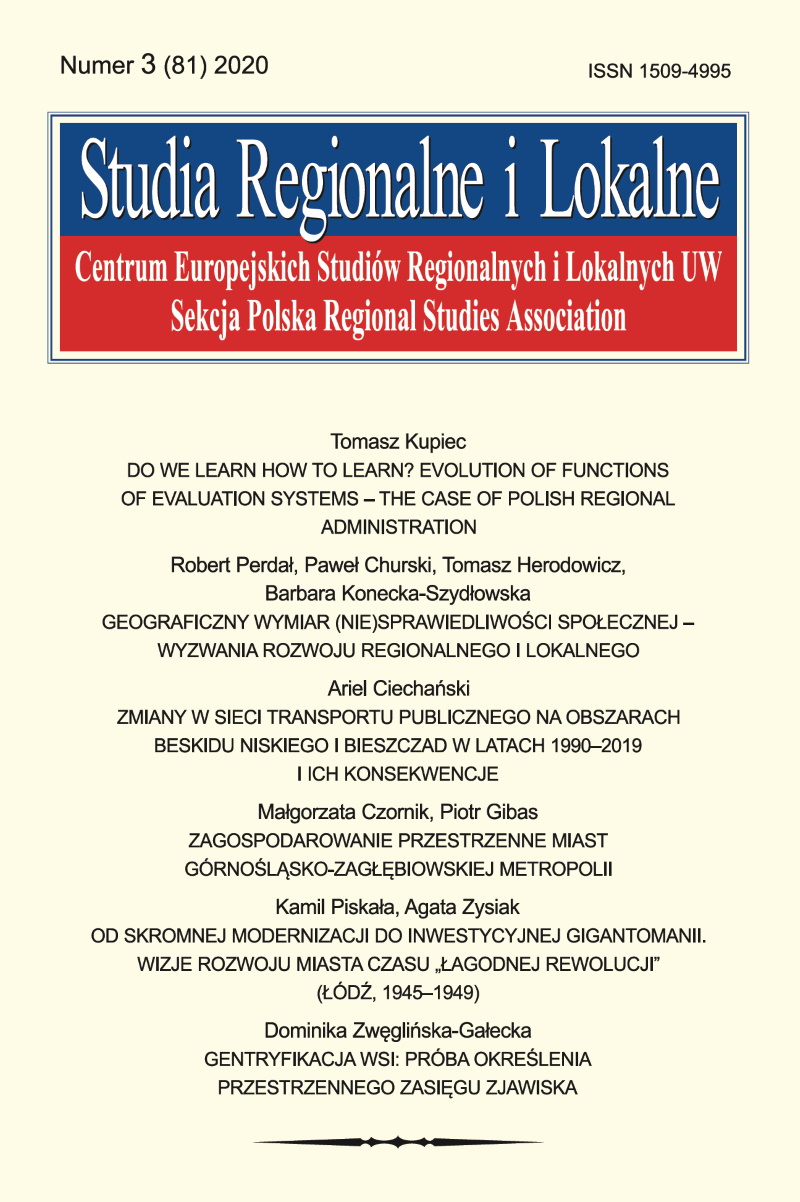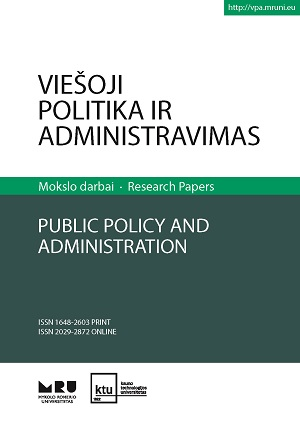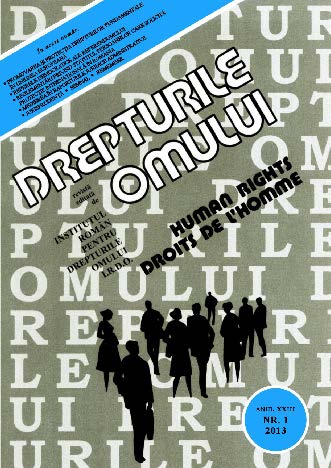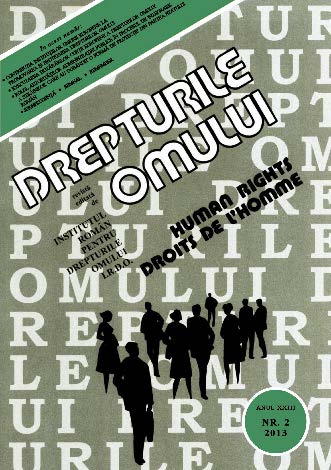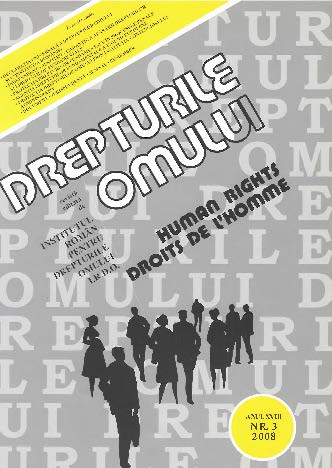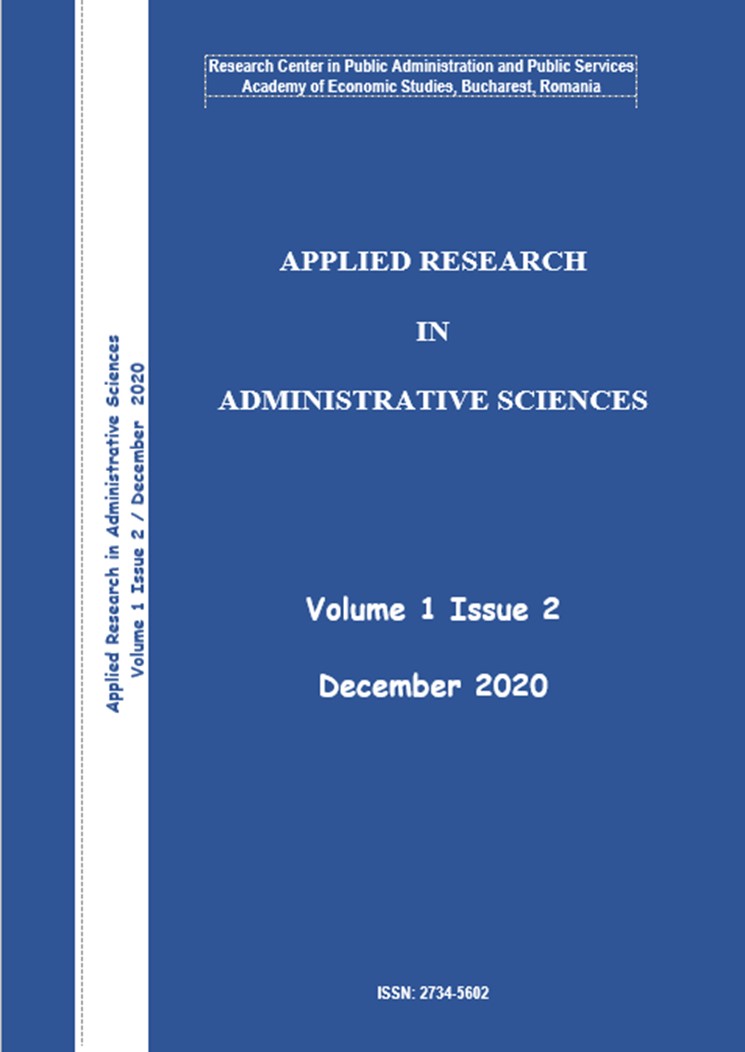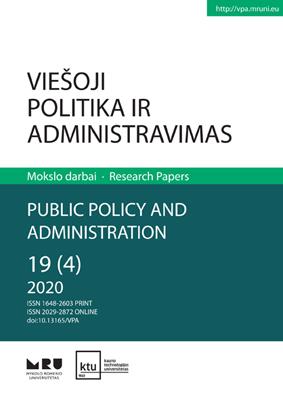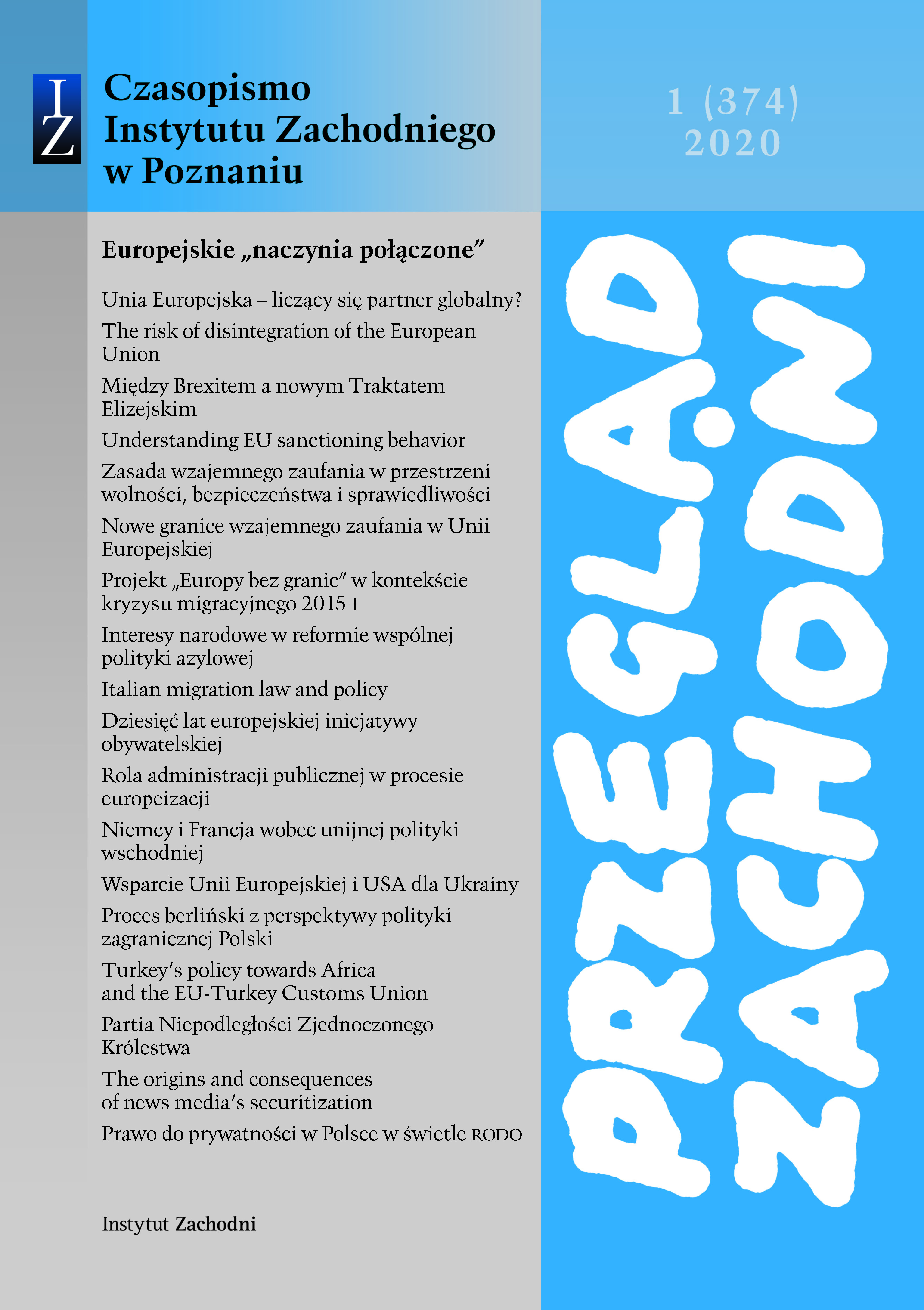
Rola administracji publicznej w procesie europeizacji na przykładzie Polski i Niemiec
The main objective of this article is to present the role of public administration and the factors that shape in the face of challenges posed by the process of Europeanization. The specific goal, however, is the analysis of factors conditioning the fulfilment of the function of public administration in the process of Europeanization in Poland and Germany. The research problem of this article is the analysis of differences in the functioning of public administration in both countries. This sector plays a key role in the effective participation of a country in the processes of Europeanization, as well as determines its internal efficiency. The article uses research methods specific for social sciences, in particular political sciences. The first of the methods used is comparative studies, which show similarities and differences in the functioning of public administration of both countries in the processes of Europeanization. Using the medium-range system method, attempts were made to define the place of public administration as an element of the functional subsystem of the European policy of a country, and also showed the evolution of changes taking place in this sector. In turn, neo-institutionalism of rational choice and historical neo-institutionalism made it possible to indicate the factors determining the administrative efficiency of the state in the process of Europeanization. In the study quantitative techniques were mainly used, i.e. the analysis of statistical data from institutions such as the European Commission – E-government Benchmark, Bertelsmann Foundation - Sustainable Governance Indicators, World Bank - Worldwide Governance Indicators, Gallup World Poll. A critical analysis of the literature was also carried out regarding the evolution and role of public administration in the process of Europeanization. The main research hypothesis is contained in the statement that the efficiency of public administration as an instrument of European state policy is conditioned by institutional and social factors, which require a longer time perspective and properly used legal and institutional instruments for the emergence of positive effects.
More...
